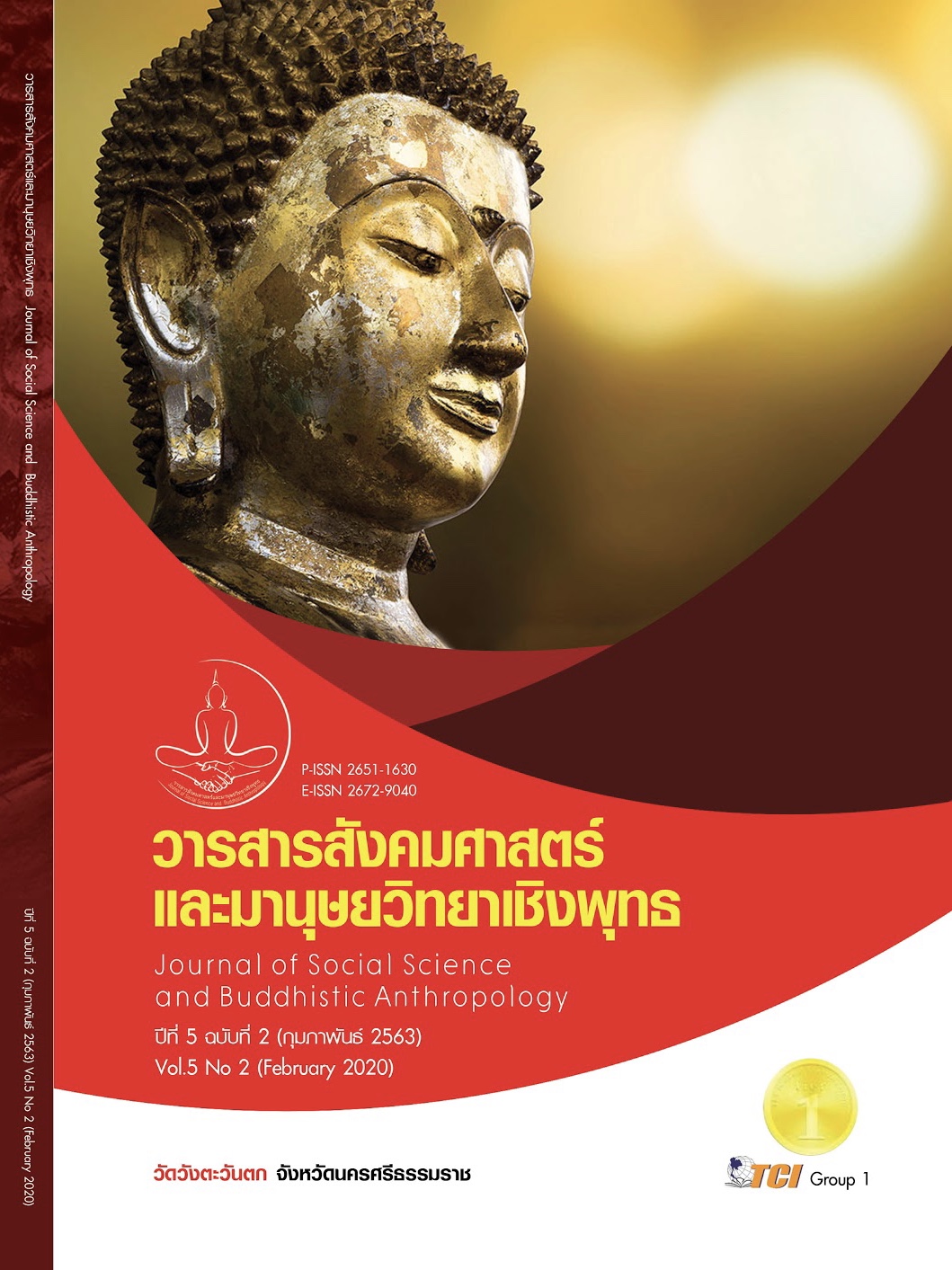THE ECONOMIC DEVELOPMENT MODEL FOR THAI LOCAL COMMUNITY 4.0
Keywords:
Economic Development, Community Economic Development, Thailand 4.0, Thai LocalAbstract
The objectives of this study were investigated economic problems of Thai local community and studied ways to develop economy of Thai local community 4.0 to be guidelines to develop economy of local community to go with policy for developing the country. The researcher used the qualitative research methodology as follows: 1) Document research 2) In-depth interview in 3 points: 1) Innovation driven, 2) Participation driven, and 3) Environmentally friendly driving. The target group used in the study was personnel in Phranakhon Si Ayutthaya Rajabhat University by dividing into 10 academic persons, supporting staff 6 persons and local people settled around the Phra Nakhon Si Ayutthaya Rajabhat University, a total of 10 people, including all the target group of 26 persons.
The results of this research indicated 1) that economy of Thai local community had problem of creating ability limit of local community to produce new economic innovations, lacking encouragement from national and local government, lacking training about knowledge on participation in creating community's potential and lacking policy determination in participating to develop economy of local community and environmental damage from doing business that has effects on economy and closing of business rapidly affecting damage of environment that affects economy of local community. 2) The model of economic development for local community to satisfy 4.0 consisted of 3 models which were (1) the model of driving with innovation, supporting economic model and increasing ability of local innovation, research and developing better products, driving development of local community economy, focusing on good service with better performance, and producing local community products to satisfy the needs of customers, (2) the model of driving with participation which is developing community prototype to be economic area of knowledge, organizing associative stage for local community to participate in solving economic problems focusing on benefit for community (3) the model driving that is environmental-friendly which is developing technology about environment and more effective to solve problems that come from doing business.
References
ชนินทร เพ็ญสูตร. (2560). บริบททางเศรษฐกิจ และการเมืองประเทศไทย 4.0. วารสารรัฐศาสตร์และรัฐประศาสนศาสตร์, 8(1), 67.
เพ็ญประภา ศรีประสม. (2562). ประเทศไทยในยุค 4.0 โมเดลการพัฒนาเศรษฐกิจแนวใหม่. เรียกใช้เมื่อ 31 ธันวาคม 2562 จาก https://ced.sci.psu.ac.th/km/km/experience-km/2560/thailand4.0
ภานุวัฒน์ ณ นครพนม. (2561). การศึกษาแนวทางการส่งเสริมและพัฒนาสหกรณ์สู่ประเทศไทย 4.0. กรุงเทพมหานคร: กรมส่งเสริมสหกรณ์.
มณพิไลย นรสิงห์. (2560). การพัฒนาคนเพื่อการขับเคลื่อนประเทศไทยไปสู่ Thailand 4.0. เรียกใช้เมื่อ 10 ธันวาคม 2562
วงศ์สถิตย์ วิสุภี. (2560). บทบาทชุมชนท้องถิ่นกับการขับเคลื่อนสู่โมเดลประเทศไทย 4.0. กรุงเทพมหานคร: สถาบันการเรียนรู้เพื่อปวงชน.
สำนักงานเลขาธิการสภาผู้แทนราษฎร. (2560). การปรับโครงสร้างเศรษฐกิจไทยเข้าสู่ประเทศไทย 4.0. กรุงเทพมหานคร: สำนักงานเลขาธิการสภาผู้แทนราษฎร.
สำนักงานสภาพัฒนาการเศรษฐกิจและสังคมแห่งชาติ. (2562). การขับเคลื่อนโดยนวัตกรรมการผลิต หรือ Thailand 4.0. เรียกใช้เมื่อ 31 ธันวาคม 2562
สำนักเลขาธิการนายกรัฐมนตรี. (2560). ขับเคลื่อนอนาคนสู่ความมั่นคง มั่งคั่ง ยั่งยืน Thailand 4.0. วารสารไทยคู่ฟ้า สำนักเลขาธิการนายกรัฐมนตรี, 33(1), 14.
สุวิทย์ เมษินทรีย์. (2562). พิมพ์เขียว Thailand 4.0 โมเดลขับเคลื่อนประเทศไทยสู่ความมั่งคั่ง มั่นคงและยั่งยืน . กรุงเทพมหานคร: สำนักนายกรัฐมนตรี.
สุวิทย์ เมษินทรีย์. (2562). พิมพ์เขียวและแผนปฏิบัติการขับเคลื่อน. กรุงเทพมหานคร: สำนักนายกรัฐมนตรี.









